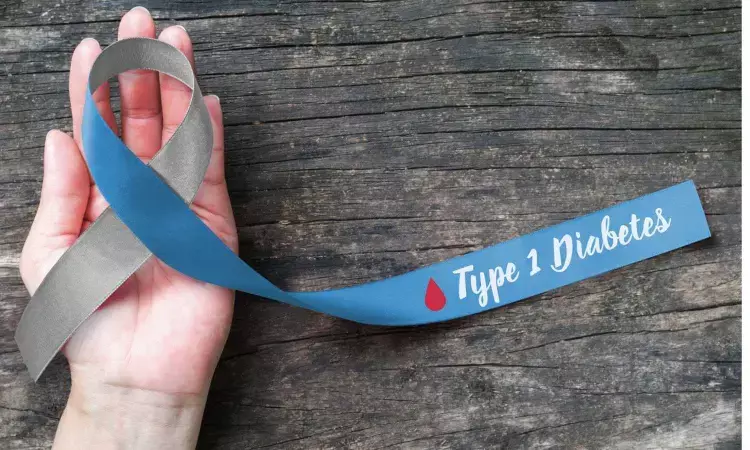- Home
- Medical news & Guidelines
- Anesthesiology
- Cardiology and CTVS
- Critical Care
- Dentistry
- Dermatology
- Diabetes and Endocrinology
- ENT
- Gastroenterology
- Medicine
- Nephrology
- Neurology
- Obstretics-Gynaecology
- Oncology
- Ophthalmology
- Orthopaedics
- Pediatrics-Neonatology
- Psychiatry
- Pulmonology
- Radiology
- Surgery
- Urology
- Laboratory Medicine
- Diet
- Nursing
- Paramedical
- Physiotherapy
- Health news
- Fact Check
- Bone Health Fact Check
- Brain Health Fact Check
- Cancer Related Fact Check
- Child Care Fact Check
- Dental and oral health fact check
- Diabetes and metabolic health fact check
- Diet and Nutrition Fact Check
- Eye and ENT Care Fact Check
- Fitness fact check
- Gut health fact check
- Heart health fact check
- Kidney health fact check
- Medical education fact check
- Men's health fact check
- Respiratory fact check
- Skin and hair care fact check
- Vaccine and Immunization fact check
- Women's health fact check
- AYUSH
- State News
- Andaman and Nicobar Islands
- Andhra Pradesh
- Arunachal Pradesh
- Assam
- Bihar
- Chandigarh
- Chattisgarh
- Dadra and Nagar Haveli
- Daman and Diu
- Delhi
- Goa
- Gujarat
- Haryana
- Himachal Pradesh
- Jammu & Kashmir
- Jharkhand
- Karnataka
- Kerala
- Ladakh
- Lakshadweep
- Madhya Pradesh
- Maharashtra
- Manipur
- Meghalaya
- Mizoram
- Nagaland
- Odisha
- Puducherry
- Punjab
- Rajasthan
- Sikkim
- Tamil Nadu
- Telangana
- Tripura
- Uttar Pradesh
- Uttrakhand
- West Bengal
- Medical Education
- Industry
Early rapid weight gain after T1DM diagnosis tied to non remission of diabetes

Rapid weight gain due to intensive insulin therapy in the early stages of T1diabetes diagnosis results in non-remission and increases the duration of partial remission. Insulin resistance caused by weight gain possibly caused Non-remission.
The study was published in the Journal of Diabetes, on 12th August 2023.
Immune-mediated beta-cell destruction causes T1 Diabetes leading to absolute insulin deficiency. Diagnosis of T1 DM is followed by partial clinical remission characterized by decreased insulin requirement and good glycemic control. Factors like residual beta-cell function and improvement in insulin sensitivity by reversal of glucose toxicity were thought to be related to partial remission (PR). Due to the uncertainty on the predictors and physiological factors causing the remission, researchers from the Department of Pediatrics, Division of Endocrinology Turkey have conducted a retrospective study to investigate the relationship between the rate of body weight gain after diagnosis of type 1 diabetes mellitus (T1DM) and other clinical factors for the development and duration of PR.
By using insulin dose-adjusted glycosylated hemoglobin (HbA1c) values, children (2–16 years) with new-onset T1DM (n = 99) were grouped into remitters and non-remitters. By recording the laboratory and clinical data as well as daily insulin requirement per kilogram of body weight at diagnosis and each visit, PR duration was determined. Any changes in body mass index standard deviation score (BMI-SDS) were calculated by the auxological data that was collected every six months.
Findings:
- There were 47 remitters (47.5%) and 52 (52.5%) non-remitters.
- The mean increase in BMI-SDS at the first 6 months of diagnosis was higher in the non-remitters than in the remitters (p = 0.04).
- A negative correlation was observed between the duration of PR and the change in BMI-SDS between 6 and 12 months after diagnosis.
- The predictors of remission were male sex, younger age, prepubertal status, and lower HbA1c.
- Among these male sex had the highest chance by multivariate regression.
Thus, the study found that remission may be associated with less weight gain in children with T1DM and hence rapid weight gain shortens the duration of remission.
Further reading: Early weight gain after diagnosis may have an impact on remission status in children with new-onset type 1 diabetes mellitus. https://doi.org/10.1111/1753-0407.13455
BDS, MDS
Dr.Niharika Harsha B (BDS,MDS) completed her BDS from Govt Dental College, Hyderabad and MDS from Dr.NTR University of health sciences(Now Kaloji Rao University). She has 4 years of private dental practice and worked for 2 years as Consultant Oral Radiologist at a Dental Imaging Centre in Hyderabad. She worked as Research Assistant and scientific writer in the development of Oral Anti cancer screening device with her seniors. She has a deep intriguing wish in writing highly engaging, captivating and informative medical content for a wider audience. She can be contacted at editorial@medicaldialogues.in.
Dr Kamal Kant Kohli-MBBS, DTCD- a chest specialist with more than 30 years of practice and a flair for writing clinical articles, Dr Kamal Kant Kohli joined Medical Dialogues as a Chief Editor of Medical News. Besides writing articles, as an editor, he proofreads and verifies all the medical content published on Medical Dialogues including those coming from journals, studies,medical conferences,guidelines etc. Email: drkohli@medicaldialogues.in. Contact no. 011-43720751



